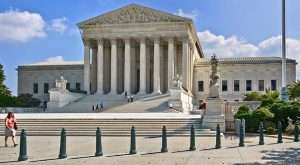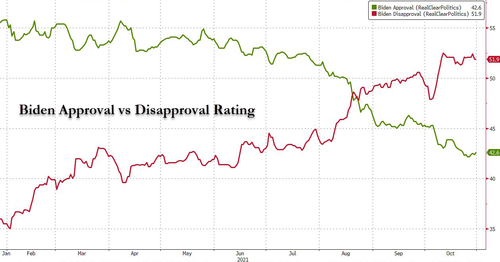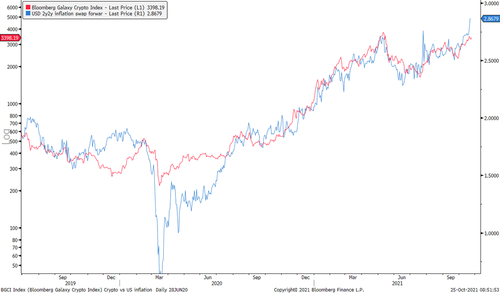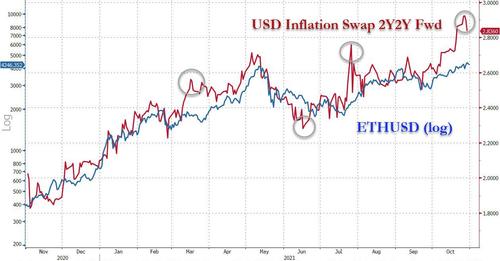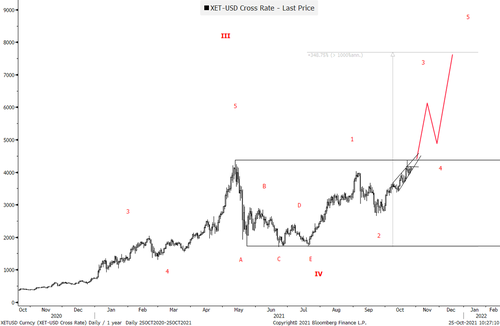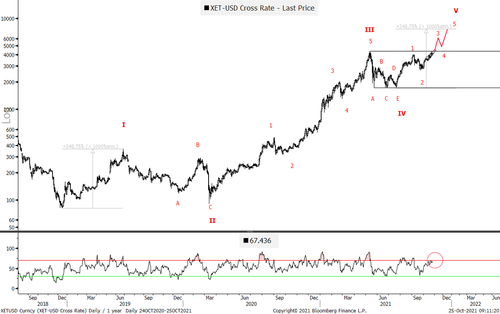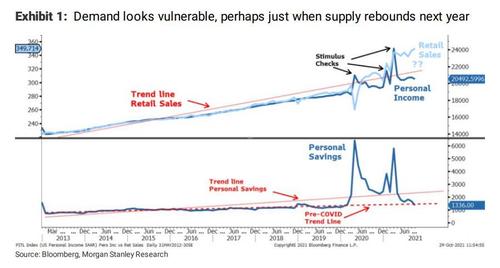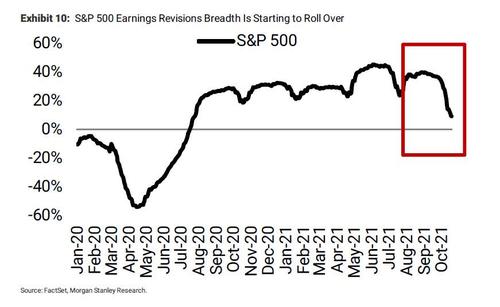I was filing a friend-of-the-court brief recently—hold on, this will get relevant—and was corresponding with the counsel for the parties: Federal Rule of Appellate Procedure 29(a)(2) requires that the brief either be accompanied with a motion for leave or “state[] that all parties have consented to its filing,” so I e-mailed the parties asking, “Would you consent to the filing of the brief, so that we can file it without drafting an accompanying motion for leave?” The side we are supporting responded promptly with “Appellees consent,” but the other side responded with “No objection.”
No objection? Wait, is that consenting to the filing? Or just saying that they won’t file an opposition to our motion for leave, if we file a motion? I wasn’t going to tell the judges that the parties “have consented” when one of them merely wasn’t objecting.
So I responded with, “just to confirm, may I note that as your consenting to the filing of the brief.” Not hearing back, I e-mailed again, “Sorry to trouble you, but I just wanted to confirm that you indeed consent.” Then I got back, “Yes that’s fine,” and I figured that was enough.
By sheer coincidence, I was planning on kissing a woman that day …. No, actually, that wasn’t it (these days, I only kiss my wife, and we aren’t on Rule 29(a)(2) terms); but I do remember, back in the day, 35 years ago now, I was talking to an older female friend of mine about a woman I had indeed asked for permission to kiss, and my friend told me quite firmly that women didn’t like to be asked about that.
And now to Huma Abedin: The Guardian reported, based on its review of Abedin’s not-yet-released memoir,
[Headline:] Longtime Hillary Clinton aide Huma Abedin describes sexual assault by US senator …
Abedin details her alleged assault while describing her work for Clinton when the former first lady and future secretary of state and presidential candidate was a US senator from New York, between 2001 and 2009….
[A]fter describing a Washington dinner attended by “a few senators and their aides” but not Clinton, Abedin writes: “I ended up walking out with one of the senators, and soon we stopped in front of his building and he invited me in for coffee. Once inside, he told me to make myself comfortable on the couch.”
She says the senator took off his blazer, rolled up his sleeves and made coffee while they continued to talk.
“Then, in an instant, it all changed. He plopped down to my right, put his left arm around my shoulder, and kissed me, pushing his tongue into my mouth, pressing me back on the sofa.
“I was so utterly shocked, I pushed him away. All I wanted was for the last 10 seconds to be erased.”
Abedin writes that the senator seemed surprised but apologized and said he had “misread” her “all this time”. As she considered how to leave “without this ending badly”, she writes, the senator asked if she wanted to stay.
“Then I said something only the twentysomething version of me would have come up with—’I am so sorry’—and walked out, trying to appear as nonchalant as possible.” …
Abedin later followed up that she did not consider it sexual assault (and also that the senator was someone she “knew and … was very comfortable with”), and I think that’s right: An unwanted open-mouthed kiss, generally isn’t considered sexual enough to be sexual assault. (California law, for instance, defines misdemeanor “sexual battery” as touching “the sexual organ, anus, groin, or buttocks of any person, and the breast of a female” “against the will of the person touched, … for the specific purpose of sexual arousal, sexual gratification, or sexual abuse.”)
At the same time, this did make me wonder: Is this indeed something that should be seen as at least improper behavior (whether or not illegal), or just as a nonculpable misreading of the signals that led to an awkward situation? My general sense of “the rules,” at least back when I was dating in the mid-1980s to early 2000s, was what one might call “gradual escalation”: Some degree of acquaintance (could be very short, if the meeting was in certain kinds of contexts) and conversation, followed by kissing, followed by more touching, followed by undressing, followed by sex of various sorts; instead of asking for overt permission, one of the parties (usually the man, but could be the woman) would try the next step, and then see if that was rebuffed.
Skipping steps (e.g., kissing a total stranger, touching breasts without kissing or something like that in between, etc.) was bad, trying a rebuffed step (in the absence of some indication of greater interest) was bad, but merely trying the next step and learning that it wasn’t wanted was seen as potentially awkward but not reprehensible. If you want to map this to the legal rules, one might think of (say) kissing someone after what you thought was an interaction that reflect some interest as involving a known risk that the kiss wouldn’t be welcomed, but in context it wasn’t seen as a “substantial and unjustifiable risk” and thus wasn’t what the criminal law would call “reckless.”
I personally liked the idea of more express consent; I don’t think much would be lost in life if that were the norm in romantic contact and not just in appellate briefing. My sense, though, is that just was quite far from the custom.
But that was just my recollection, so I decided to ask several close female friends of mine, whom I’ve known for decades, for their thinking on the subject; with their permission, I quote their responses. They are obviously not a random sample of the population. But I can confidently say that they are intelligent, thoughtful, educated, independent women, who I expect have found themselves the object of romantic interest from a considerable number of people, and whose judgment I much respect. They are also a politically and professionally mixed group (though with lawyers overrepresented, of course), and they have a mix of marital statuses: married, divorced, and never married.
Here are their answers, lightly edited and excerpted, using numbers instead of names for privacy reasons:
[1.] Normatively, “I think asking for explicit permission is the only right approach,” but norms were different in “the aughts.” Still, even applying the gradual escalation norms, “coffee to ‘pushing tongue in my mouth’ is skipping a whole bunch of steps,” such as “a soft closed mouth kiss,” “sit[ting] closer and closer,” “‘casual’ physical contact,” “ask[ing] about your relationship status,” etc.
[2.] “Yes it’s sexual assault. Yes the norms have changed. This behavior was sexual harassment in the 80’s. Women just didn’t come forward because not much was done to help them.
“No it’s not a casual pass. They’re not on a date. This was a situation where they were work colleagues and he in his position took advantage. Women deal with this shit all the time and have to behave gracefully while navigating men’s unwarranted attention. Now that people are more outspoken, the lines are clearer.”
[3.] “Yes, the term ‘sexual assault’ has been broadened in the last decade or two, and rightly so, IMO.
“My sense it that it was a pass that went wrong, but also one done by a man who has power to a women who does not. I’d wager he’d done it before, with no consequences, and might have even been successful several times. That’s not to say that even if he was, the attention was wanted or reciprocated with other women. In that situation, especially back then, women often did not feel they had the agency they have now, fearing the repercussions, especially when one’s job might be at stake.”
[4.] “It does seem like a rather sudden escalation and certainly an inappropriate one. If someone had done it to me, I probably would have hit him.” But it’s not sexual assault.
[5.] “This is not sexual assault to my mind, and calling it such diminishes acts that I do classify as sexual assault. We need to return to the idea that some men are cads (meaning, he knew what he was doing and was hoping she would just go along with the powerful senator) and some are oafs (meaning that he misread her, isn’t good at non-verbal cues generally, and feels terrible about this confusion).”
[6 (summarizing a phone conversation).] Not sexual assault, pretty consistent with gradual escalation norms; being asked before being kissed was very unusual.
[7 (summarizing a phone conversation).] Not sexual assault, may be slimy but not that bad.
[8.] “My sense is the pass was crass but in no way assault. Not then. Not now. His response to her strong recoil was, in my view, proof that he intended to be assertive rather than assault. It was a botched execution. It’s a broadening of the term sexual assault to the extreme. One that waters down the term.
“I do not think men should need to ask permission to kiss a woman, though when that has been the case personally, I found it charming in the one instance I recall since the person clearly knew I was interested. This is, of course, personal preference but in general, I still think it’s nice for a man to take the lead and, well, read the room. Women like that, too! If they are interested. There’s the rub in intimate relationships. I hope to never need to press the kiss/no kiss-o-meter prior to a first kiss with someone. Boy would that take the fun out of it.”
“There’s no way this was considered sexual assault by an 80’s definition. I hope it does not constitute assault today.”
[9.] “Definitely not sexual assault.” “I read the excerpt to each of [my children] separately, verbatim, then asked the question.”
“[Daughter,] 13: Definitely not sexual assault. It was just a communication issue. I then asked her if the guy was supposed to ask first. Answer no.
“[Son,] 15: Same answer. But there might be a problem if the guy had done this to a lot of women—it still wouldn’t be sexual assault, just that the guy had issues.
“I do think things have changed, but more so around consent when intoxicated, and the right to revoke consent. I don’t think there are ‘norms of escalation.’ The sudden kiss is seen in all sorts of TV shows and such nowadays.
“But more significantly, you forgot to include an arguably salient part of the book excerpt—I forget what it was exactly, but something about how when, later, Abedin saw that senator and [Hillary Clinton] was there, and [Clinton] seemed to sense that something had happened, as if the senator had done that to other women—which feeds into [my son’s] comment. I don’t think that makes the senator a predator or anything, just a run-of-the-mill lech, like a guy with sex on the brain—not uncommon, and IMO not that big of a deal.”
Finally, here’s a reaction from Prof. Sherry Colb (Cornell), whom I asked about this (I classify this separately because the other responses are all from women I asked because they were my close friends, while Prof. Colb is a professional acquaintance whom I asked because of her thoughtfulness on such matters):
[10.] “I imagine that the women you spoke with about their preferences (for avoiding express questions) were probably thinking about what they wanted from a guy that they were really interested in.
“With such a guy, they preferred not to have him ask ‘is it okay if I kiss you?’ or something like that. They would prefer for him to know that they are interested and to take a chance and kiss them. That’s obviously fine when they in fact are hoping he will kiss them.
“I wonder, though, how they would feel if you asked them about a guy that they find gross or just completely unattractive who somehow got it into his head that his feelings for them were reciprocated. Would they prefer that he ask ‘can I kiss you?’ or would they prefer that he just do what that senator did with Huma Abedin?
“I would bet a lot of money that when a woman is alone with a man for whom she has no romantic feelings, she would much much prefer that he inquire than that he start kissing her or whatever. In other words, the utility of questions is not for people who really want to hook up. It is for people who don’t.
“I also think what the women may really be telling you is that they want guys to know what they want without having to ask. This wish is understandable, of course. What could be more romantic than being interested in someone and having that someone be so tuned in to you that they can tell what you would most want them to do? The problem comes up where the woman either feels no attraction for the guy (presumably Huma’s situation with the senator) or where the woman feels attracted to him but does not want to go as ‘far’ (hard to avoid middle school jargon) as he does.
“I think that the population of women who don’t want the particular romantic contact that the guy wants (whether that be any contact at all or a level of contact that exceeds what they are comfortable with) should be the relevant population when we decide what qualifies as sexual imposition or assault. Why? Because if a woman is super-interested in a guy, then she loses a whole lot less when he asks for a kiss (instead of just kissing her, as she wishes he would do) than a woman who is not at all interested in the guy loses if he starts touching or kissing her.
“It is easy to make fun of such things as the Antioch Code when you have two people who really just want to hook up, but the utility of asking is really for people who don’t want this person on them and prefer not to have to fight him off. Adding to my sense that questions might be best is the fact that in studies, men seem to commit a lot of Type 1 errors when assessing a woman’s interest in them. Women will self report that they were just being friendly, and men will interpret what’s happening as sexual interest. To me, words can be really useful under these conditions.”
In any event, I thought all these views were worth presenting, in part precisely because they ranged over a broad spectrum. I’d be interested in hearing our readers’ reactions.
from Latest – Reason.com https://ift.tt/3pV9cJO
via IFTTT
